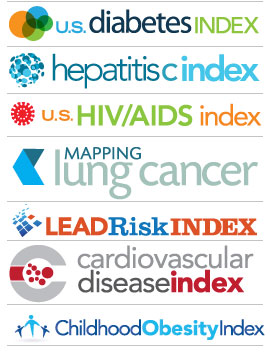Posted by National Health Index
Stroke News
Sunday, September 16th, 2012
Incidence, Time Course, and Predictors—A Systematic, Prospective Analysis Stroke.ahajournals.org: September 6, 2012 Patients with acute cerebrovascular events are susceptible to serious cardiac arrhythmias, but data on the time course and the determinants of their onset are scarce. Methods—The prospective Stroke-Arrhythmia-Monitoring-Database (SAMBA) assessed cardiac arrhythmias with need for urgent evaluation and treatment in 501 acute neurovascular patients […]
Posted by National Health Index
Stroke News
Sunday, September 16th, 2012
Neurology.org: September 5, 2012 To systematically review the literature on female risk factors and risk of SAH. Methods: We searched Medline and EMBASE for articles published between January 1985 and July 2011. For all studies fulfilling the predefined criteria, we obtained risk ratios (RRs) or odds ratios (ORs) with 95% confidence intervals (CIs) for female risk factors. […]
Posted by National Health Index
Stroke News
Friday, September 7th, 2012
The prevalence of silent brain infarcts varies from 8% to 28% in the general elderly population. Silent brain infarcts are associated with increased risk of subsequent stroke and cognitive dysfunction. By definition, silent strokes lack clinically overt stroke-like symptoms and fail to come to clinical attention; however, impaired recall of symptoms may be a potential […]
Posted by National Health Index
Stroke News
Friday, September 7th, 2012
Stroke.ahajournals.org: August 30, 2012 Background and Purpose—Memory impairment is a predictor and a consequence of stroke, but memory decline is common even in healthy elderly individuals. We compared the long-term trajectory of memory functioning before and after stroke with memory change in stroke-free elderly individuals. Methods—Health and Retirement Study participants aged 50 years and older (n=17 […]
Posted by National Health Index
Stroke News
Friday, September 7th, 2012
Stroke.ahajournals.org: August 30, 2012 Background and Purpose—The critical access hospital (CAH) designation was established to provide rural residents with local access to emergency and inpatient care. CAHs, however, have poorer short-term outcomes for pneumonia, heart failure, and myocardial infarction compared with other hospitals. We assessed whether 30-day risk-standardized mortality rates (RSMRs) and risk-standardized readmission rates (RSRRs) […]
Posted by National Health Index
Stroke News
Friday, September 7th, 2012
Stroke.ahajournals.org: August 30, 2012 Background and Purpose—Poststroke cognitive decline and white matter lesions (WML) are related to poor poststroke survival. Whether cognitive reserve as reflected by educational history associates with cognitive decline, recurrent strokes, and poststroke mortality independent of WML is not known. Methods—A total of 486 consecutive acute mild/moderate ischemic stroke patients subjected to comprehensive […]
Posted by National Health Index
Stroke News
Friday, August 31st, 2012
Neurology.org: 8/29/12 To investigate the association between chocolate consumption and risk of stroke in men and conduct a meta-analysis to summarize available evidence from prospective studies of chocolate consumption and stroke. Methods: We prospectively followed 37,103 men in the Cohort of Swedish Men. Chocolate consumption was assessed at baseline using a food-frequency questionnaire. Cases of first stroke […]
Posted by National Health Index
Stroke News
Friday, August 31st, 2012
Medicalxpress.com: August 28, 201 “It is well established that smoking increases the risk of having a stroke,” said Professor Colivicchi. “Quitting smoking after an acute ischemic stroke may be more effective than any medication in reducing the risk of further adverse events. However, on the other hand, our study shows that stroke patients resuming active smoking […]
Posted by National Health Index
Stroke News
Friday, August 31st, 2012
Stroke.ahajournals.org: August 28, 2012 Background and Purpose—The determination of stroke etiology is essential for planning treatment for stroke prevention. However, the etiology of stroke is undetermined in many patients. Methods—During a 10-year period, consecutive patients with acute ischemic stroke were enrolled. The stroke etiology was determined based on the Trial of ORG 10172 in Acute Stroke […]
Posted by National Health Index
Stroke News
Friday, August 31st, 2012
Stroke.ahajournals.org: 8/28/12 Genetic variation influences risk of intracerebral hemorrhage (ICH). Hypertension (HTN) is a potent risk factor for ICH and several common genetic variants (single nucleotide polymorphisms [SNPs]) associated with blood pressure levels have been identified. We sought to determine whether the cumulative burden of blood pressure-related SNPs is associated with risk of ICH and pre-ICH […]

